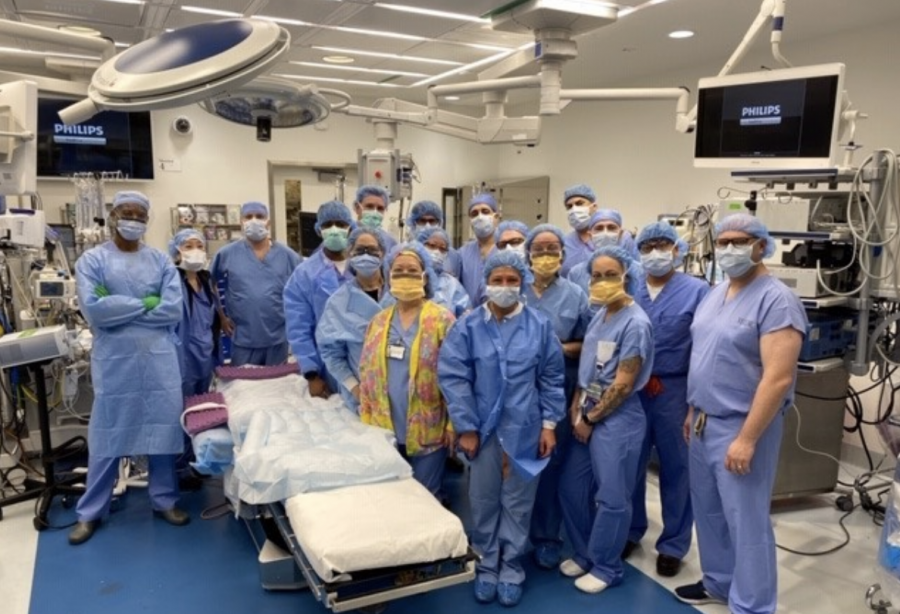The NYU Langone Transplant Institute became the first United States medical center to perform a successful heart transplant using a new organ revitalization technique last Monday.
The Transplant Institute partnered with LiveOnNY — an organ and tissue donation non-profit — with the goal of having fewer organ shortages and paving way for healthier hearts. NYU Langone’s method allows the blood to circulate while the heart is still inside the body, rather than after the heart has been removed from the body as performed in previous transplant procedures, such as Donation after Circulatory Death.
“This transplant was an exciting moment for our team,” Dr. Robert Montgomery, the director of the Institute, said. “[Langone’s] accomplishment could greatly increase transplant rates across the U.S.”
The Institute’s new method allows surgeons to circulate blood through an organ donor’s body after death is declared, using a heart-lung machine cardiopulmonary bypass — a device that keeps the patient’s body oxygen constant. While the machinery was previously used for bypass surgeries, this instance marks the first time it has been used for a heart transplant.
3,551 of the 39,720 lifesaving transplants performed in 2019 were heart transplants. At the start of 2020, 73,025 people were listed as actively waiting for organ donations. Langone’s new method could increase the number of viable donors.
Delicate organs like hearts are only viable for transplantation for six hours after being removed from the donor, but Dr. Zachary Kon, the surgical director of lung transplantation at Langone, said he believes the new method will preserve the stability of all other organs in the donor’s body as well.
“[The transplant] has promise to increase not only heart donation rates but other lifesaving organs as well,” Kon said in a press release.
Before performing this first transplant, researchers and physicians went through almost two years of logistical planning to ensure they met all ethical and regulatory requirements for U.S. hospitals. NYU prospective medical students hope to see the technology applied widely soon.
“While it sounds really scary, I think it is really important for a hospital as prestigious as NYU Langone to take the first steps in testing out new methods of transplant,” CAS first-year Mashrur Khan, who is on the pre-health track, said. “It could save someone else’s life, and improve lives around the world.”
Medical procedures such as this one are inspiring aspiring doctors and medical students to imagine the future of medicine.
“As I aspire to become a doctor, it would be great to help treat patients with that type of technology,” Liberal Studies first-year student Alicia Alvarez, who is also studying pre-health, said. “In the coming years, I would love to see the technique applied not only in private university hospitals such as NYU Langone, but also other private and public hospitals that might not have as many resources or funding.”
Email Roshni Raj at [email protected].


























































































































































